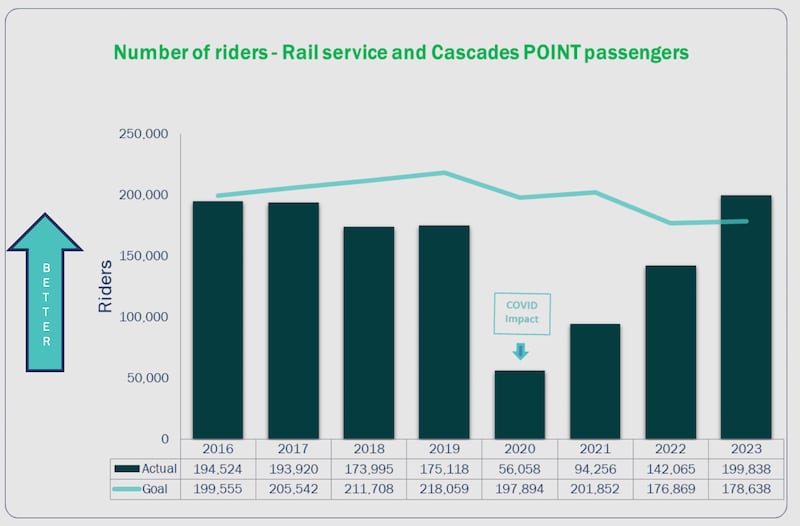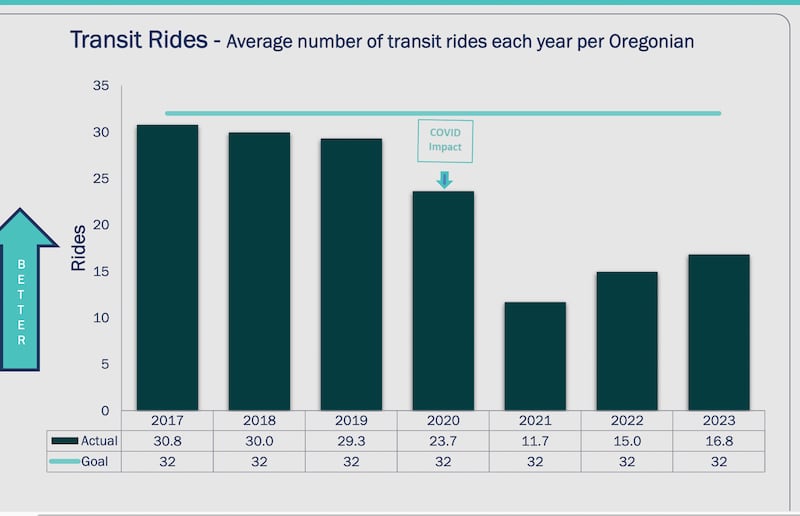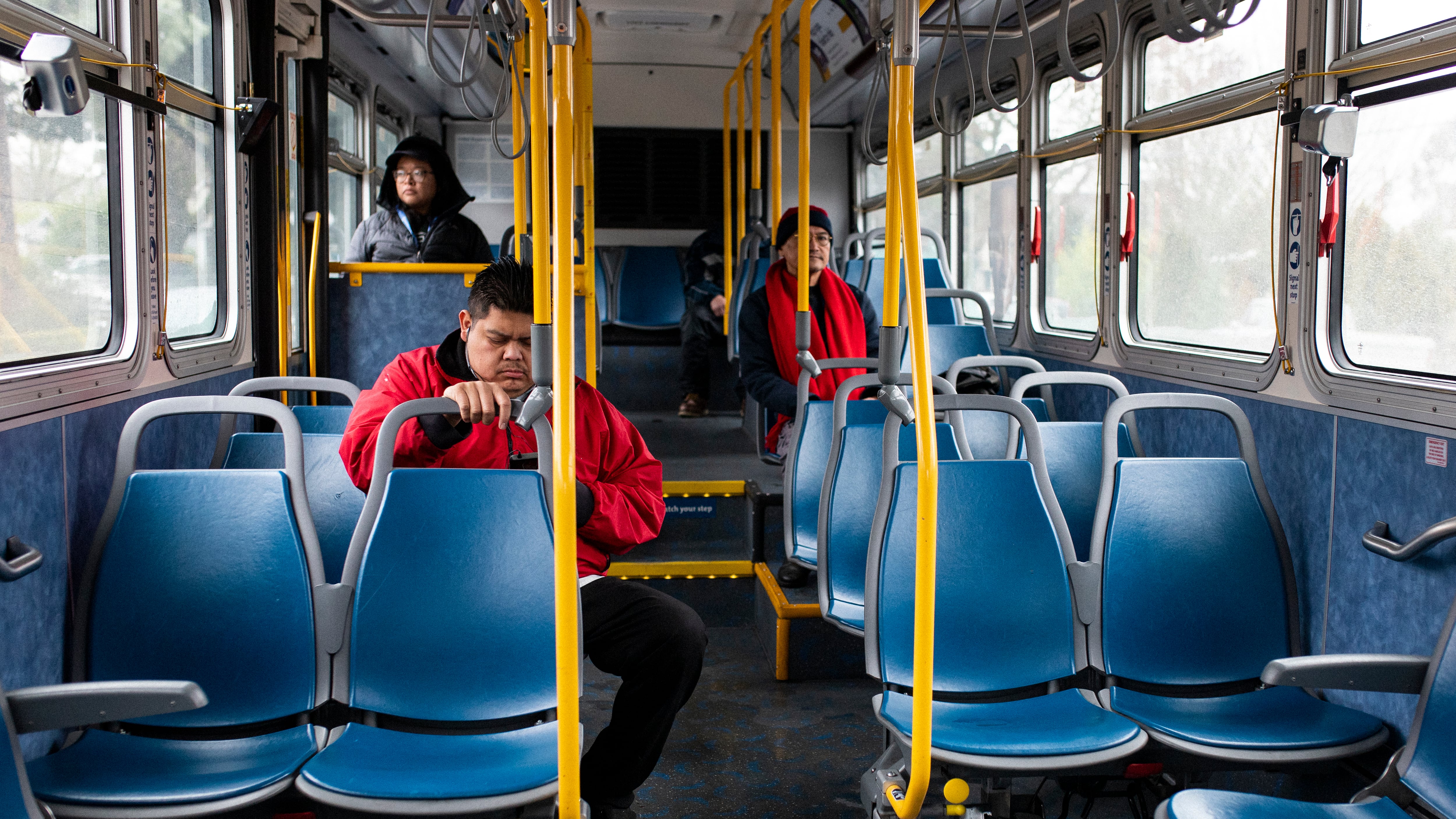At the Oregon Transportation Commission meeting Aug. 1, officials presented a wealth of information, including measures of how the public gets around. That information came as part of what are called key performance measures—in effect, report cards that the Legislature requires of state agencies.
In one sense, the performance measures provide a way to assess agencies on their routine duties, which for the Oregon Department of Transportation include maintaining roads and bridges and building new projects on time and on budget.
But two of the outcomes ODOT measures extend beyond the highway system to a loftier goal: Oregon’s determination to reduce carbon emissions. Transportation is the largest source of emissions in Oregon, so getting people to burn less gas and diesel fuel, either by driving less, driving electric cars, or taking buses or trains is key to reducing emissions. (It would also reduce ODOT’s gas tax revenue, but that’s another story.)
Yesterday’s figures include two charts that provide some insight into how the push to get people into mass transit is going.
The good news: Ridership on Amtrak trains has now slightly exceeded pre-pandemic levels. ODOT attributes the increase to lower fares, better promotion, and high gas prices.

The news for local public transit ridership is less positive.
ODOT’s numbers show a steady increase over the past three years, but ridership in 2023 was only a little more than half of pre-pandemic levels and just over half of the target level of 32 annual rides per Oregonian. ODOT attributed the struggles to “travel pattern changes, driver shortages, supply chain issues, and safety concerns.”

